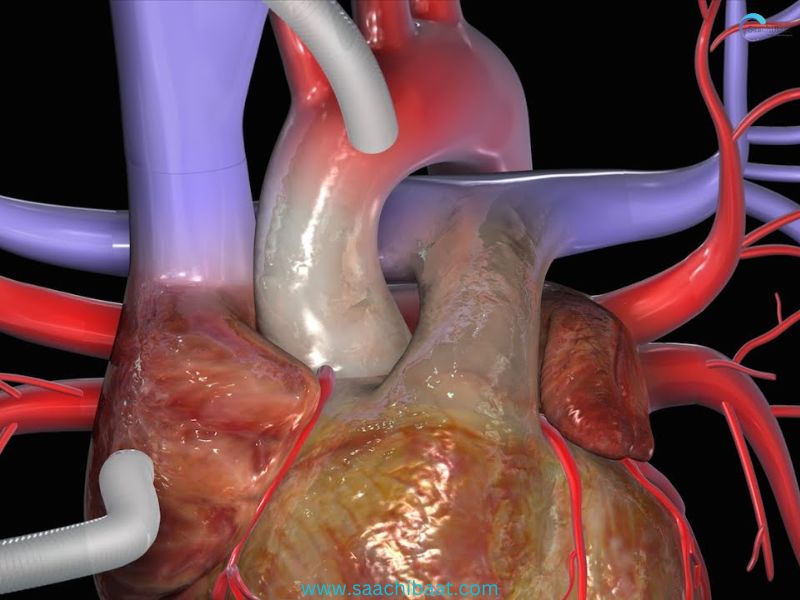We are well aware of the ever increasing incidence of coronary artery disease
(CAD) that is, the blockage of the coronary arteries due to cholesterol deposits,
leading to symptoms of angina, heart attack and even heart failure. While
angioplasty or bypass surgery remain the mainstay of treatment, the lay public
has a fear psychosis about Coronary Artery Bypass Surgery (CABG). This surgery
entails using other blood vessels harvested from the patient’s own body, to
bypass the blocked coronary arteries, thereby creating a new route for blood
supply to the heart muscle (hence the term, ‘bypass”).
Here are some common myths around CABG.
MYTH: Bypass surgery is very risky
FACT: Any major surgery entails a certain amount of risk but modern techniques
used in bypass surgery like beating heart surgery and newer pain relieving drugs
have greatly reduced the risks and recovery time after CABG.
MYTH: Bypass surgery is permanent
FACT: No, you may have a recurrence of blocks even in the bypass grafts if you are
careless with lifestyle modifications like diet, smoking, physical inactivity,
adherence to medicines etc. However, if one leads a healthy lifestyle, taking care
to eat a healthy diet, control risk factors like diabetes, smoking, hypertension,
cholesterol and indulge in adequate physical activity, you bypass surgery will last
you the remainder of your lifespan.
MYTH: Stents are superior to bypass
FACT: Stenting and bypass have their own respective indications. However,
overall long-term results have been proven to be superior in the case of bypass
surgery. The major advantage of stenting is the considerably shorter recovery
time after stenting. Also, in acute MI (heart attack) settings, stenting is the first
option as a major procedure like bypass is associated with higher risk during an
ongoing attack. Sometimes though, in those cases not suitable for stenting,
bypass surgery may be the only option.
MYTH: Post CABG I have to be on bedrest for 3-6 months
FACT: Today the mantra is early ambulation and return to physical activity.
Patients are up and walking as early as 2 days after CABG, they are discharged on
the 3 rd to 4 th day following surgery. Apart from certain specific restrictions on
some physical activities like lifting heavy weights, patients are encouraged to be
as active as possible. They may rejoin employment a maximum of 4 weeks after
surgery.
MYTH: I should not take bath after surgery
FACT: Patients are encouraged to bathe after 72 hours of surgery. This is actually
very important to keep the surgical site clean and free from infection. If a surgical
wound is healthy 48 hours after surgery, there is no harm in contact with normal
soap and water. There is no need for any special soap or disinfectant solution.
MYTH: I should avoid taking milk and milk products after surgery as that may
lead to pus formation in the wound
FACT: There is no relation of pus formation with milk intake following any surgery,
specifically after CABG one is encouraged to drink low-fat milk as a source of
calcium to promote healing of the breastbone.
MYTH: I cannot travel after CABG
FACT: Road/rail travel can be undertaken immediately on discharge after CABG.
Air travel can be undertaken 3-4 weeks after CABG. Sitting/riding on 2 wheelers
can be done after at least 4 weeks, same applies to self-driving of 4 wheeler.
MYTH: I can return to my normal, fatty diet after 4 weeks of surgery as I have
got new vessels to supply blood to my coronary arteries.
FACT: Post-CABG, one must undertake lifestyle changes including low cholesterol,
low sugar diet. After all, the bypass grafts have been taken from your own body
and are also exposed to the same circulating cholesterol in your blood, which may
lead to a recurrence of blocks unless these lifestyle changes are done and
maintained.
MYTH: I must avoid sex after bypass surgery
FACT: One may return to normal sexual activity once the breastbone heals which
usually takes 6-8 weeks. However, this is subject to consultation with your doctor
as other factors like heart function are also to be looked at in this regard.
MYTH: I must avoid meeting people after discharge
FACT: One may meet as many people as they wish, provided no one they meet
has an open respiratory tract infection as our body immunity is at a low ebb for a
few weeks after surgery. But meeting people and socializing is an important part
of the post-CABG patient’s recovery and is encouraged.
MYTH: Leg veins are the best grafts used in bypass
FACT: Arteries are the best grafts used as numerous studies have shown that they
have the longest lifespan. However, not many centres are regularly doing Total
Arterial Bypass grafting due to the increased operating time and surgical expertise
needed. In skilled hands, arterial grafts are the best and longest-lasting bypass
grafts known.
D. ANIRBAN KUNDU
SR CONSULTANT & HEAD, CTVS
SHREE AGGARSAIN INTERNATIONAL HOSPITAL,
Telegram Link :
For latest news, first Hand written articles & trending news join Saachibaat telegram group
https://t.me/joinchat/llGA9DGZF9xmMDc1


